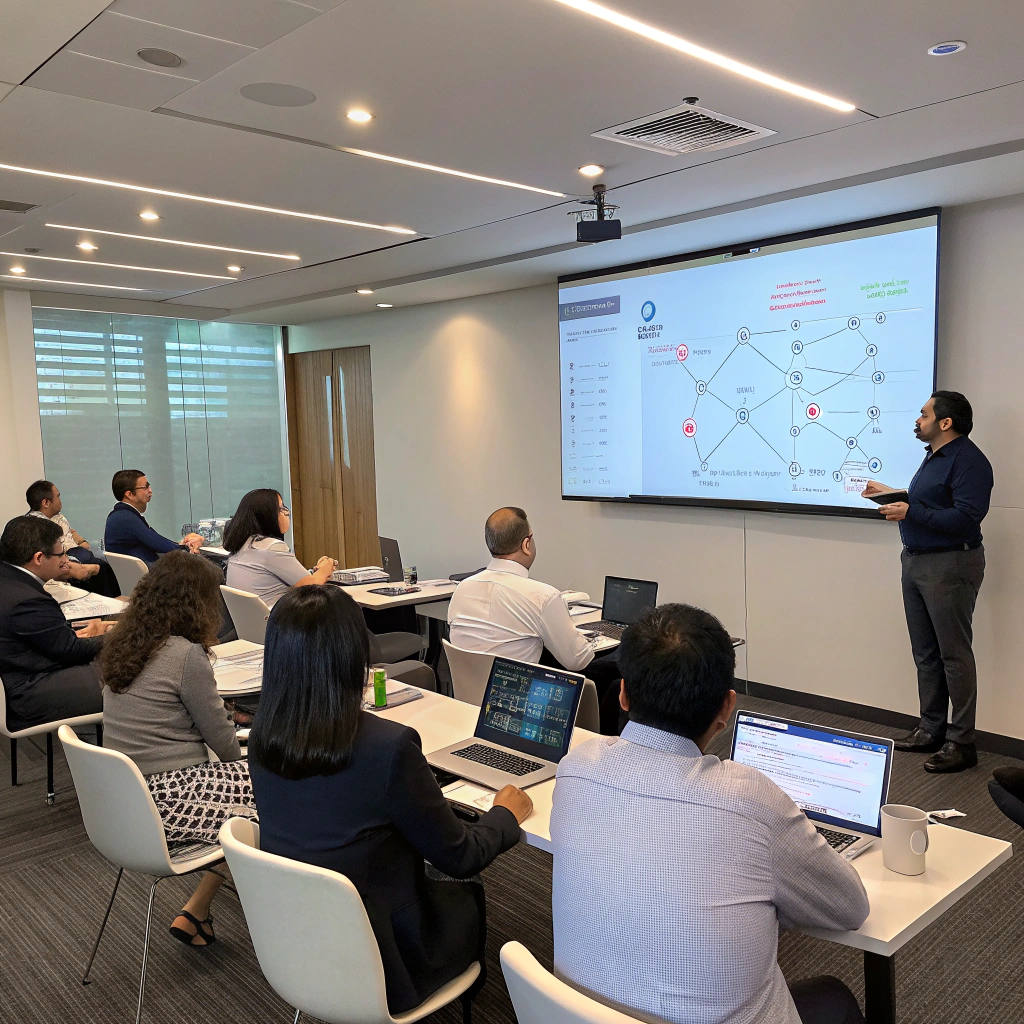How to Become a Machine Learning Engineer: Step-by-Step Career Guide

Introduction
Machine Learning (ML) has rapidly transformed from a niche research area into one of the most in-demand careers in technology. From self-driving cars to personalized recommendations on Netflix, ML engineers are at the heart of modern innovation. No wonder LinkedIn ranked Machine Learning Engineer as one of the fastest-growing jobs globally, with companies across industries—from healthcare to finance—investing heavily in ML talent.
If you’ve ever wondered “how to become a machine learning engineer”, you’re not alone. Thousands of students, working professionals, and career changers are looking to enter this lucrative and future-proof field.
In this comprehensive guide, we’ll cover:
Who a Machine Learning Engineer is
Why ML engineering is a high-demand career
Step-by-step roadmap to becoming one
Essential skills, courses, and certifications
Career growth opportunities and salaries (India & abroad)
Best resources to get started
Whether you’re a student after 12th, a B.Tech/B.Sc graduate, or a working professional looking to upskill, this blog will give you a clear career roadmap to becoming a machine learning engineer.
What Exactly Does a Machine Learning Engineer Do? The Role Defined
Understanding the role is the first step in learning how to become a machine learning engineer. An ML engineer sits at the intersection of software engineering and data science. While a Data Scientist might focus on analyzing data and building prototypes, the Machine Learning Engineer is responsible for taking those prototypes and scaling them into robust, reliable, and production-ready systems.
Who is a Machine Learning Engineer?
A Machine Learning Engineer (MLE) is a specialized software engineer who designs, builds, and deploys machine learning models into production systems. Unlike data scientists who focus more on research and analysis, ML engineers:
Write production-level code
Optimize algorithms for scalability
Work with massive datasets
Build and deploy ML models into apps or services
Simply put: ML engineers bridge the gap between data science and software engineering.
Why Become a Machine Learning Engineer in 2025?
Machine Learning is no longer limited to tech giants like Google or Amazon—it’s everywhere. Businesses use ML for fraud detection, medical diagnosis, recommendation systems, and even AI-driven chatbots like ChatGPT.
Key Reasons to Choose ML Engineering Career:
High Demand – Companies are struggling to hire enough ML engineers.
Attractive Salaries – Average salaries are among the highest in IT.
Global Career Opportunities – Work for top MNCs or remotely.
Future-Proof Skill – AI/ML adoption is expected to grow exponentially.
According to Indeed, the average salary of a Machine Learning Engineer in the US is around $130,000 per year, while in India, it ranges between ₹8 LPA to ₹25 LPA depending on skills and experience.
How to Become a Machine Learning Engineer
Your Step-by-Step Roadmap: How to Become a Machine Learning Engineer
This is your definitive, action-oriented plan for anyone seeking a clear answer on how to become a machine learning engineer. This roadmap breaks down the journey into manageable phases, focusing on the exact skills and projects you need to build. For those committed to this path, understanding how to become a machine learning engineer is about consistent, project-driven learning.
Build an Unshakable Foundation (Months 1-3)
The first phase in learning how to become a machine learning engineer is establishing a robust technical base. This foundation is non-negotiable.
Learn Python: Achieving deep proficiency in Python is the critical first step for anyone aiming to become a machine learning engineer.
Key Libraries: Immediately integrate
NumPyfor numerical computations andPandasfor data manipulation into your practice.Software Engineering Fundamentals: Mastering these practices is what will ultimately separate a skilled professional in this field; become a machine learning engineer who writes production-ready code, not just scripts.
Goal: Ability to manipulate datasets and version your code effectively.
Dive into Machine Learning Fundamentals (Months 4-6)
This stage is where you build the theoretical core that defines the profession. Here, the path to become a machine learning engineer transitions from programming to algorithmics.
Take a Foundational Course: A course like Andrew Ng’s classic on Coursera provides the structural understanding needed for this career.
Understand the Algorithms: Move beyond using libraries as black boxes. To truly become a machine learning engineer, you must grasp the ‘how’ and ‘why’ behind models like Linear Regression and Decision Trees using
Scikit-learn.Practice on Kaggle: Applying theory to real data is a cornerstone of the process to become a machine learning engineer. Use beginner competitions to learn the full model lifecycle.
Goal: Confidence in building, training, and evaluating multiple ML models from scratch.
Specialize in Deep Learning and Advanced Topics (Months 7-9)
To become a machine learning engineer capable of working on cutting-edge applications, you must advance into neural networks and specialized domains.
Deep Learning Specialization: Dedicating time to a structured course is essential for mastering the complexities of deep learning.
Master a Framework: Industry proficiency in either TensorFlow or PyTorch is a mandatory requirement for any modern ML engineer.
Choose a Sub-field: Diving into either Computer Vision (CV) or Natural Language Processing (NLP) allows you to develop a specialist profile, making you more competitive. This specialization is a key part of the journey to become a machine learning engineer.
Goal: Ability to build and train a neural network for a specific task.
Master the Engineering and MLOps Parts (Months 10-12)
This is the most critical differentiator. This phase answers the question of how to become a machine learning engineer versus a data scientist. It’s about building systems, not just models.
Learn a Cloud Platform: Hands-on experience with AWS, GCP, or Azure is now a fundamental requirement for deployment.
Learn Containerization with Docker: Packaging your model into a container is a fundamental skill for ensuring consistency and scalability.
Learn Basic Orchestration with Kubernetes: Understanding how to manage containers is crucial for deploying robust applications.
Build a CI/CD Pipeline for ML (MLOps): Automating the testing and deployment process is the hallmark of a senior engineer and is essential for anyone looking to become a machine learning engineer at a top company.
Goal: Ability to take a model from a notebook, containerize it, and deploy it to the cloud to serve real-time predictions.
Build a Killer Portfolio (Ongoing)
Your portfolio is your tangible proof of skill. It is the single most important asset that shows you know how to become a machine learning engineer in practice, not just in theory.
Quality Over Quantity: Showcase 3-4 stellar end-to-end projects that demonstrate the full lifecycle of a machine learning system.
Showcase the Full Lifecycle: Each project must demonstrate your end-to-end capability, from problem definition to a live deployment, which is the ultimate proof you know how to become a machine learning engineer.
Example Project: “An End-to-End ML System for Predicting Bike Sharing Demand.” The repo includes code, a Dockerfile, and a link to the live web app.
Engage with the Community and Prepare for Interviews (Final Months)
The final step in your guide on how to become a machine learning engineer is to transition from learning to earning.
Network: Engaging with the community provides learning opportunities and valuable connections.
Prepare for the Triathlon of Interviews: Prepare rigorously for the three core interview areas: Coding, ML Theory, and System Design.
This structured roadmap provides a clear, phased approach to how to become a machine learning engineer. By following these steps and building a strong portfolio, you will transform your goal into a achievable plan.
How to Become a Machine Learning Engineer Successfully
A great ML engineer combines technical expertise with problem-solving skills.
Core Skills:
Programming (Python, R, C++)
Mathematics & Statistics
Machine Learning Algorithms
Data Handling & Preprocessing
Deep Learning & Neural Networks
Advanced Skills:
Natural Language Processing (NLP)
Computer Vision
Reinforcement Learning
Generative AI Models
Non-Technical Skills:
Critical Thinking
Problem Solving
Communication Skills
Team Collaboration
Salary of a Machine Learning Engineer
Machine Learning Engineers enjoy one of the highest salary brackets in IT.
| Country | Average Salary (Entry-Level) | Mid-Level | Senior-Level |
|---|---|---|---|
| India | ₹8 – ₹12 LPA | ₹15 – ₹25 LPA | ₹30+ LPA |
| USA | $110k – $130k | $140k – $160k | $180k+ |
| UK | £45k – £65k | £70k – £90k | £100k+ |
| UAE | AED 180k – 250k | AED 300k+ | AED 400k+ |
Certifications to Boost Your ML Career
Getting certified increases credibility. Some top certifications:
AWS Certified Machine Learning – Specialty
Google Cloud Professional Machine Learning Engineer
Microsoft Azure AI Engineer Associate
TensorFlow Developer Certificate
Certified Artificial Intelligence & Machine Learning Professional (CAIML)
Future of Machine Learning Engineering
The future of ML engineers looks incredibly promising. With the rise of AI-driven applications, Generative AI, and automation, demand for skilled engineers will only increase. Gartner predicts that by 2030, 80% of enterprise applications will have embedded AI/ML capabilities.
Resources to Get Started
Kaggle – Practice datasets & competitions
Fast.ai – Free practical deep learning courses
Cambridge Infotech – Industry-focused AI & ML career programs
FAQs
1. Can I become a machine learning engineer without a degree?
Yes, with the right skills, certifications, and projects, many companies hire self-taught ML engineers.
2. How long does it take to become a machine learning engineer?
On average, 1–2 years of focused learning & practice.
3. Is coding necessary for ML engineering?
Yes, programming is a core requirement.
4. Which is better: Data Scientist or Machine Learning Engineer?
Data Scientists focus more on insights, while ML Engineers focus on building and deploying models.
5. Is Machine Learning a good career in India?
Absolutely. With digital transformation, India is among the top adopters of AI/ML.
6. What is the most important first step for how to become a machine learning engineer?
The most critical first step is to solidify your foundation in Python programming and basic software engineering principles. Without this, the advanced concepts of machine learning will be much harder to grasp and implement effectively.
Conclusion
If you’re serious about building a career in this high-growth domain, start now by learning the right skills, building projects, and gaining certifications. The sooner you begin, the faster you’ll position yourself as a competitive candidate in the job market.Take the first step today—enroll with Cambridge Infotech and transform your future as a Machine Learning Engineer.
Ready to Start Your Machine Learning Journey?
Becoming a Machine Learning Engineer is one of the smartest career moves you can make today. The demand is high, salaries are competitive, and opportunities are global. Don’t just learn the theory—gain hands-on skills, certifications, and career guidance with experts who understand the industry.
At Cambridge Infotech, we offer job-oriented Machine Learning and AI courses designed to take you from beginner to professional.
Start building real-world ML projects
Learn from industry trainers
Get placement support & career mentorship
Your future as a Machine Learning Engineer starts here.
Enroll Now at Cambridge Infotech and transform your career.
Call us now at – 099024 61116
Visit our Website: cambridgeinfotech.io/
Check Out Related Blogs
Best Reasons to Learn Artificial Intelligence – Boost Your Career & Skills in 2025
Best Digital Marketing Strategies 2025: Proven Tactics for Explosive Growth








